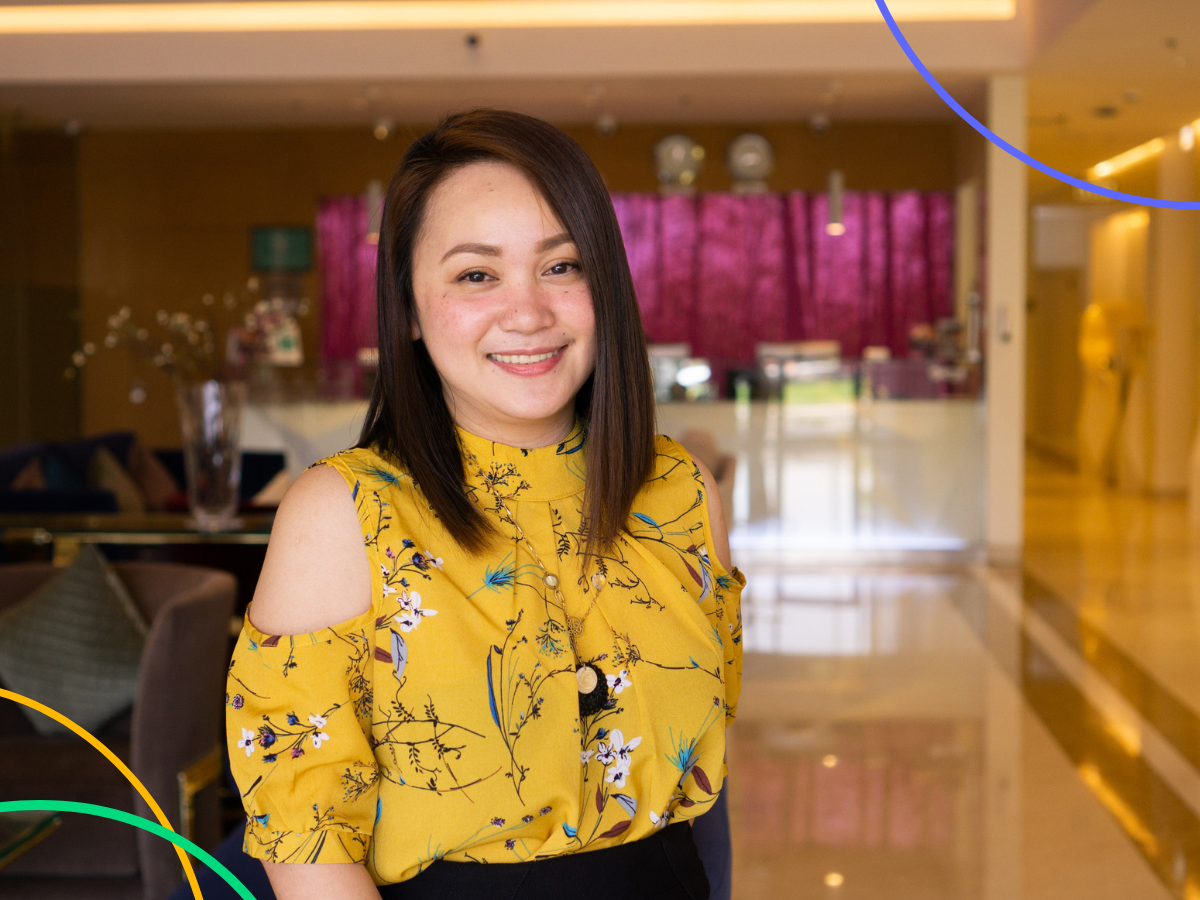The third largest diaspora in the United Arab Emirates (UAE) and some of the most friendly, cheerful people you’ll ever encounter (and chances are, you have!), Filipinos account for 6.1% of the country’s population, while Filipinos in Dubai make up 21.3% of the city’s headcount.
Having built a unique reputation on a tireless work ethic, a relentlessly positive attitude, and a lifelong love for food and family, Filipinos in Dubai and Abu Dhabi have become economically essential to the UAE’s labour force.
For many years, the narrative surrounding Overseas Filipino Workers (OFWs) in Dubai and in other places has been about Filipinos working as domestic helpers, nannies, and entry-level construction workers. While some still occupy those good, honest roles (4 out of 10 OFWs all over the world are in “elementary” jobs), there has been a major trajectory shift in the professions that Filipinos in Dubai are now employed in.
In 2019, communication consultancy group EON conducted a first-of-its-kind study on Filipino expats working in the UAE and found that 64% are highly skilled and work in the county’s five top sectors—engineering and construction (17%), tourism and hospitality (16%), customer service (13%) and health and medical fields (10%), and marketing and advertising (8%).
Of the Pinoys (as they are fondly nicknamed) working in these sectors, 64% are university and college graduates and 6.7% hold post-graduate degrees. And in the last five years, 63% of Filipinos in Dubai and the rest of the UAE received salary hikes, with one in five reporting monthly earnings between AED 10,000 to 40,000 ($2,700 to $10,100).
“The [Filipino] community is very engaged, increasingly wealthy, proud of their new home and looking for ways they can help support the diverse, tolerant and multicultural country that is the UAE,” said EON founder and CEO Junie del Mundo.
Bolstered by heftier incomes and higher financial literacy, 80% of Filipinos in the UAE are looking to invest within the next year, according to survey findings by New Perspective Media Group in November 2022.
 Image credit: YouTube
Image credit: YouTube
These OFWs have become the pride and joy of the Philippines—they single-handedly sent home a record $31.4 billion in remittances to family and friends in 2021 (5.1% up from 2020’s $29.9 billion), an amount that significantly boosted the recovery of the Philippine economy post-pandemic. According to the Philippine Statistics Authority, each OFW sent an average of PHP 91,000 ($1,600) to loved ones in the Philippines in 2021.
In 2021, OFWs in Dubai and the rest of the UAE sent a total of $1.32 billion in cash remittances to the Philippines. This was an increase from 2020’s $1.29 billion (the lowest from 2014 to 2021), showing the beginnings of economic recovery after the pandemic. However, the biggest year for cash remittances from OFWs in the UAE was in 2017, totalling $2.54 billion. In the following year, remittances from the region dropped to $2.04 billion and fell even lower to $2.04 billion in 2019. Main reasons for the decline include lower crude oil prices and job nationalisation schemes of Gulf states.

Source: Statista
Nonetheless, these transfers are a lifeline to family and friends back home who struggle to make ends meet in a country where the minimum wage is in the world’s lowest bracket—less than $500 a month.
Their contributions inspire others to learn about what daily life is like for these UAE residents. What motivates and inspires them to work as hard and as determinedly as they do to support so many others?
The dedication and work ethic that Filipinos in Dubai and in different countries display are not just markers of ambition or career advancement but of love, loyalty, and deep gratitude to family.
To continue exploring this Filipino story, strength of spirit, and valuable contributions to society and the economy in Dubai and the rest of the UAE, keep on reading.
[Are you looking for an inclusive, all-in-one financial platform that’s easy to use? Encourage your employer to sign up for the NOW Money digital payroll platform for flexible, cost-effective, and intuitive payroll management both WPS and non-WPS salary payments.]
A day in the life of an OFW in Dubai

Image credit: YouTube
OFWs in Dubai are no strangers to long, arduous work days (a 12-hour-per-day, 6-day workweek is common); less-than-ideal living situations (staying in shared, small quarters is a common starting point for an OFW in Dubai); and juggling several roles (many work and study at the same time). But for them, the labour and sacrifice is all worth it for the pursuit of a better life for themselves and their families.
Let’s take a look at the personal stories of two young Filipino men named Third and Daniel who moved to the Middle East from the Philippines with ambition, heart, and a determined hope for a more financially secure future.
“Danilo III, or ‘Third’ as he likes to be known, has lived in Dubai for four months, where he moved to from the Philippines. He works as a concierge for a building management company. Just like most migrant workers in the UAE, Third works six days a week for 12 hours a day, 7am until 7pm. He lives in Al Quoz, and his accommodation is a long distance from the metro, so he has to share a bus with the colleagues he lives with (he shares a room with several other men). Work is 10km away so walking isn’t an option, especially in the summer when the temperature is known to reach 50 degrees Celsius. After the bus journey, Third gets to work where he spends the day dealing with the visitors, tradesmen, and office workers in the building.”
At night, his only free time, Third tries to see his wife and fit in important tasks.
“In the evenings, Third generally does some grocery shopping or his laundry or other household tasks. When possible, he meets up with his wife, which is usually around three times a week. [They] moved over to Dubai together; however, they have to live in separate accommodation because they work for separate companies. As you can imagine, being newly weds and living such a distance away from each other with minimal public transport isn’t ideal.”
Daniel, who runs a coffee shop, has an equally long and challenging workday to contend with.
“[Daniel] doesn’t just make coffee. He’s essentially a ‘one-man team.’ He has been trusted to run the entire branch with only an intern who has recently joined him. Duties include handling inventory, permits, licences and anything else that the municipality requires; all on his own. Despite his humble demeanour, his talent is self-evident. He tells me how small the margin for error is. For example, selling a single item past its expiry date can result in the branch being closed. For a conglomerate to apportion this level of responsibility to a single employee is unheard of and the accountability never ceases.”
When he’s done at the café, work doesn’t stop for Daniel, who uses his nights to fill out paperwork for his employer and weekends for studying.
“‘I go home, take off my uniform and get back to work,’ he jokes; but this is no exaggeration. For five days a week he works from early in the morning to well into the night, handling the everyday running of the shop. Following this he begins filling out the [day’s] paperwork which doesn’t end until 10pm. After waking up at 4am he repeats this process.
“Not only does [Daniel] have to navigate his stressful work life, his weekends are spent studying at university; and he enjoys it!”
Despite the long days and heavy loads, Third and Daniel manage to keep their spirits high, displaying cheerful attitudes and industrious spirits that embody the Filipino spirit.
“[Third] enjoys his job, there’s lots to do so he’s always busy and especially enjoys getting to know the residents of the building and hearing their stories every morning. He greets everyone with a warm smile, which is bound to brighten up even the dustiest of days!”
“[Daniel] perceives the added workload as a recognition of his considerable value whilst his educational pursuits provide a personal challenge. I ask him what motivates him to be so industrious and his reply was short; ‘My parents.’ Both his mother and father are retired in his native Philippines, where his siblings also reside.”
Dedication to and love for family is at the heart of what motivates OFWs in Dubai like Third and Daniel to work as hard as they do.
“[Third] and his wife moved to Dubai to save money and make a better life for themselves, as well as to send money to their friends and family back home. Their first goal is to save enough for a proper church wedding, as they only had a small affair at home. Then they would like to rent a flat together, so they can settle down and end the current separation. Third is also putting away a little bit of money each month for when they decide to have a baby.”
“Every month [Daniel] remits as much money as possible to support [family]. However, he feels no pressure to provide. He stresses that these monthly displays of generosity are completely voluntary. He uses these payments as a means of showing his ‘respect and love’ to them… Clearly, his knack for shouldering responsibility is at the core of who he is. He accepts the burden of his work, education and providing for his family.”
Third and Daniel’s stories highlight the fact that access to affordable, inclusive money-sending services is extremely valuable to OFWs in Dubai and other parts of the world, allowing them to save for their families and futures.
“Access to an online account means [Third and his wife] could manage their finances and keep their money securely in an account (rather than in cash format stored in shared accommodation). The life they wish for is within reach. The money to be made in Dubai is far more than they can earn back in the Philippines, which will in turn open up more opportunities for their future family. Giving Third and his wife access to banking and cheaper remittance could bring their dream wedding and life as a family one step closer.”
For Third and Daniel, chasing their ambitions and continuing to care for family are intertwined, and having the opportunity to earn more means they can provide a better, more secure life for their loved ones.
“[Daniel] has passed his university exams [in the UAE], processed his paperwork and is imminently moving to Canada. There he will become the official manager of another coffee shop. His salary will increase and so will his generosity toward his family; but this is just the beginning.
“Daniel’s grand ambition is to start his own company, perhaps a food service. There he can hire his siblings, support his parents and take complete ownership of his work ethic. He would finally be able to be his own boss.”
But how do Filipinos and Filipinas in Dubai like Third and Daniel keep morale high, and from where does the Filipino community get the resilience they are so known for?
“It’s part of our culture,” award-winning Filipino educator and author Dr. Rommel Sergio told the Khaleej Times. “The way we were raised and the environment where we’ve been are just some of the factors that make us hospitable, calm under pressure, and happy. We cannot change many things in the world, but our attitude to carry on with life makes a difference,” added the Canadian University Dubai professor.
Benefits and challenges of working in Dubai
Of the 1.83 million OFWs all over the world, 78.3% are working in Asia. The UAE is the second-most popular destination of OFWs in Asia after Saudi Arabia, drawing in 14.4% of all OFWs in the Asia region. Other common destinations for Filipino expatriates in Asia are Hong Kong, Kuwait, and Qatar.
Their remittances to the Philippines (spread over Manila, Cebu, and other regions), which totalled $1.32 billion in 2021, help to sustain families and raise personal living standards.
While the higher wages and living standards are the biggest draws for OFWs in Dubai, there are other benefits and challenges to living and working in the UAE.
Filipinos in Dubai across different sectors shared some of their insights on the draws and benefits of working and living in the UAE:
- An abundance of career opportunities, with a preference for Filipino workers
- Higher, tax-free salaries
- High quality of living with different accommodation types
- Varied types of visas to apply for
- English is widely used and Tagalog is common
- Efficient public transportation
- Excellent healthcare system
- Many Filipino restaurants and establishments
- Religious tolerance for Muslims, Christians, and other faiths
OFWs in Dubai also shed light on the challenges and difficulties they face working in Dubai:
- The dry, scorching summer heat (a deviation from the hot yet humid and rainy tropics of the Philippines)
- Poor job security for entry-level workers
- High cost of living (most will rent a bed space or room partition instead of getting their own room or apartment)
- The city’s multiple fines (while OFWs deem some reasonable, others seem extreme)
Filipino professional and financial literacy profiles are changing
For many Filipinos in Dubai, the pros of working in the city outweigh the cons. Returning to EON group’s study on Filipinos in the UAE, findings showed that OFWs have risen through the ranks to now occupy roles in the country’s top five sectors.
Meanwhile, the survey by New Perspective Media Group also found that 76% of respondents are more financially knowledgeable and confident, and 68% said that they are more financially stable than they were five years ago, despite the economic crash following the pandemic.
Armed with sharper technical know-how, higher financial skills, and fatter salaries, Filipinos in the UAE are looking to invest in the next 12 months, and they are eyeing property (61%), entrepreneurship (58%), life insurance (37%), and mutual funds (32%) as their top investment choices.
“A considerable number of Filipinos have tested the water of entrepreneurship by starting small,” noted Vince Ang, New Perspective Media Group’s COO. “Some of them are keeping their job while managing their business and some of those who have managed to grow their business successfully have chosen to focus on their business full time,” Ang added.
Industrious Filipinos are no strangers to the famous “side hustle” and often have a few jobs or entrepreneurial ventures at hand, which all contribute to the reason for their hard work in the first place—an elevated life and future for them and their loved ones.
Inclusive mobile banking by NOW Money
For OFWs in Dubai, being able to send money home to the Philippines in a quick, affordable, and relatively stress-free manner is paramount to helping them sustain their families’ lives (and very often pay for siblings’ and children’s education).
Introducing NOW Money, an inclusive mobile banking platform where no one gets left behind by finance, and everyone is empowered by having instant access to a variety of essential financial services they can and want to use.
Founded in 2016, NOW Money is a smart payroll and mobile banking solution built for migrant workers in the Middle East that seeks to innovate financial services and make them easier for all involved—employees, employers, and banks—and is the Gulf’s first digital payroll and banking service for the unbanked and underbanked.
NOW Money makes managing, growing, and sending your money simple. With NOW Money’s inclusive banking services, you can receive your salary and deposit into your online account, transfer money to different parts of the world, use your NOW Money contactless debit card to make online and in-store transactions, recharge local and international mobile numbers, and check your financial statements for free, anytime.

[Daunted by complicated banking and finance apps? With NOW Money’s inclusive financial platform, you can deposit salaries, send international transfers, charge transactions, recharge mobiles globally, and keep up with your financial statements. Tell your employer about NOW Money’s digital payroll platform and all its benefits.]







